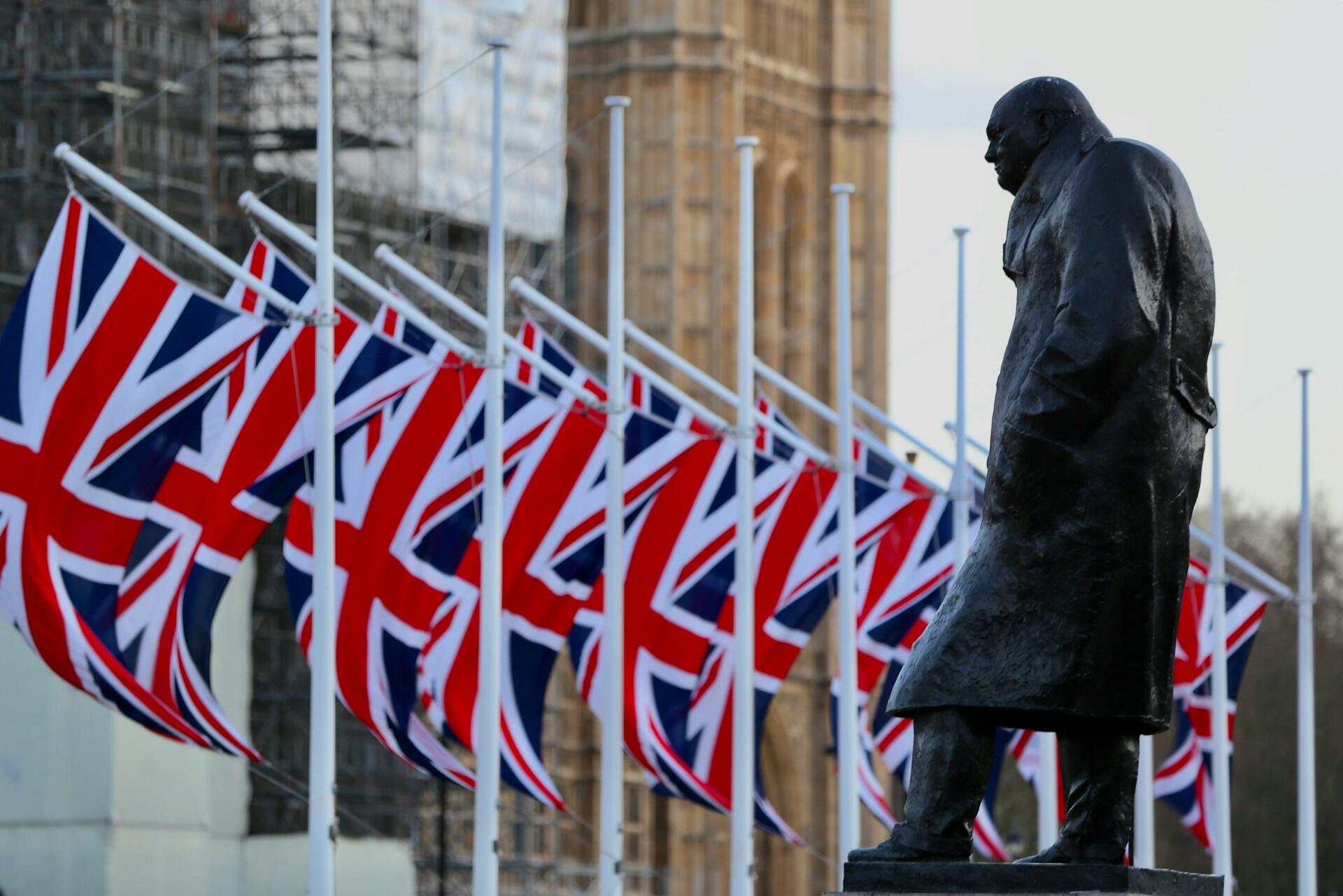The word "English" wears many hats. On one hand, it can refer to an adjective, describing everything from a cup of English tea, a full English breakfast, an English song and an English person. Yet, most of us are familiar with it as a noun, where it refers to the name of a language with a rich history, global significance, fascinating linguistic traits, cultural impacts, and a continuous collection of memorable sayings.
In this article, join us on an adventure of uncovering fun facts revolving around the English language that'll pique your interest towards this language to the next level!

🏰 Fun Facts About English's Origin and History
Did you know that English is a West Germanic language? Its development can be traced back to the blending of dialects from three main Germanic tribes — the Angles, Saxons, and Jutes, who migrated to and settled in England many centuries ago.
England has been called and written in many different ways over the centuries, including Ingleland, Angland, Ongland, Ængleland, Englalond, and Yngelond. Despite the variations, they all carry the same meaning — “the land of the Angles” (named after the Germanic tribe, a name that has endured through time).
But that's not all! After the invasion of the three Germanic tribes, the Vikings made their entrance during the 8th and 9th centuries, bringing with them their own language, Old Norse. Not only that, there was also a strong Latin influence (rise of the Catholic Church) during the same timeline, all of which contributed to the beginning of Old English.

That being said, the English language has developed across these four main periods:
Integration of Germanic + Old Norse + Latin influences
Norman French influence after the Norman Conquest by William the Conqueror in 1066
More Latin + Greek influences, William Shakespeare's works, due to the Renaissance and the printing press
The beginning of English's global status through the British Empire
🌍 Fun Facts About English's Global Status
English is known to have one of the widest reaches in the world, both among native and non-native speakers. According to reports released by the World Economic Forum, out of approximately 1.5 billion people who speak English worldwide, over 1 billion are non-native speakers. This means it is the most widely studied language in the world!
Did you know that English Language Day is observed on the 23rd of April annually?
It is designated by the United Nations on this date to commemorate the birth and death of William Shakespeare, who played a huge role in modern-day English and celebrate the global influence of the language.
Through the teaching and learning of English as a second language, India has more English speakers than the United Kingdom.
The top 3 countries with the most English speakers are:
📍USA (306 million)
📍India (129 million)
📍UK (68 million).
Based on the latest EF English Proficiency Index (2024), which assessed 2.1 million adults across 116 countries and regions, here are some examples of countries that scored high in second-language English proficiency.
✅ Very High Proficiency
- Netherlands
- Norway
- Singapore
- Sweden
- Croatia
- Portugal
- Denmark
- Greece
- Austria
✅ High Proficiency
- Germany
- South Africa
- Romania
- Belgium
- Finland
- Poland
- Bulgaria
- Hungary
- Slovakia
The focus on teaching and learning English has grown steadily over the years because of its role as the global lingua franca, especially in these three key areas: business and diplomacy, science and technology, and aviation.

📝 Fun Facts About English's Vast Vocabulary and Expressions
Now that you know that English is widely spoken and taught globally, it's time to look at the building blocks for the language itself — English words.

The English vocabulary is continuously expanding, with new words being added to dictionaries such as Merriam-Webster, Cambridge, and Oxford every year.
Over the years, there has been ongoing interest in studying how English words are used in our everyday lives.
As a result, Oxford University Press came out with the Oxford English Corpus (OEC) to compile a collection of English words based on a wide range of English texts from English-speaking countries beginning in the 2000s.
Are you curious about the 10 most commonly used English words according to the OEC? Drumrolls, here it comes!
| Rank | Word | Part of Speech |
|---|---|---|
| 1 | the | Definite article |
| 2 | be | Verb |
| 3 | to | Preposition/infinitive marker |
| 4 | of | Preposition |
| 5 | and | Conjunction |
| 6 | a | Indefinite article |
| 7 | in | Preposition |
| 8 | that | Conjunction/determiner |
| 9 | have | Verb |
| 10 | I | Pronoun |
Take a good look at these four words — alligator, bedazzled, manager, and lonely. Do you know what they all have in common? They're attributed to William Shakespeare, in one way or another, especially through his writings.
While people often think that it's Shakespeare who invented a whole collection of new words and expressions during the Middle English period, it would be more accurate to say that he was the one who actively used more new words in his writings by modifying them through the addition of prefixes or suffixes. From there, these new words and expressions became more widely used even until today.
👩🏿🤝👩🏼 Fun Facts About English's Cultural Influences
The evolution of the English language is seen through many cultural influences that we experience today. We’ll explore how English has been shaped by different languages and cultures, and how, in turn, it shapes global and popular culture — particularly through its influence in media.
Many English words are actually loanwords borrowed from other cultures and continents which encompassing different topics, which were later woven into the English vocabulary. Here are some examples:
- Words like karaoke, anime, and emoji are adapted from Japanese culture (local entertainment)
- Words like chic, lingerie, and boutique are adapted from French culture (local fashion)
- Words like koala, kangaroo, and wombat are adapted from Australian Aboriginal culture (local animals)
- Words like piano, opera, and soprano are adapted from Italian culture (local music and arts)
When it comes to media influence, English serves as a form of soft cultural power, especially through movies, series, songs, and even slang on social media. Blockbuster Hollywood movies like The Avengers, American sitcoms like Friends and The Big Bang Theory, and British series like The Crown and Sherlock have long been seen as a cultural passport to the English-speaking world, especially for audiences whose first language is not English.

Even singers who do not speak English as their first language — such as the Swedish band ABBA, Colombian singer Shakira, and the Korean boy band BTS have released several English singles to expand their fanbase.
The Beatles were the first English-language act to perform in Japan at Tokyo’s Budokan in 1966. Despite only a few fans being able to speak English, the entire concert was sold out.
🔤 Exploring and Using English's Famous Quotations
From idioms, expressions to famous English quotations, there’s no shortage of ideas to make your conversations or writing more insightful and witty. That's exactly the power of language — where each word strings together to convey meaning, spark debates and ideas, and even bring forth transformation of hearts, minds, and society.
Language is the dress of thought.
Samuel Johnson, compiler of the Dictionary of the English Language (1755)
There is always an English quote for every mood and setting, attributed to an actual saying from public figures' speeches or literature. Here are some to get the ball rolling:
✨ For a dose of inspiration and motivation
✨ For a moment of self-exploration
✨ For an embrace of love and affection
Isn't the English language fascinating? If you are interested to learn more about the history, global influences, and mastering the language components skillfully, we highly recommend you to connect with an experienced English tutor. At Superprof, you can enhance your language skills through one-to-one tutoring at your own home, at your own pace.

You can easily access a wide selection of English tutors near you and pick the perfect tutor according to your preferred teaching experience, qualification, methodology, and hourly rates, regardless of your learning level.
Whether you're studying for your GCSE exams or taking an ESOL test, your English tutor will ensure that you're well-equipped according to your learning goals. We hope this article has inspired you to rediscover your love and interest in the English language! Keep going!
Summarise with AI:
























